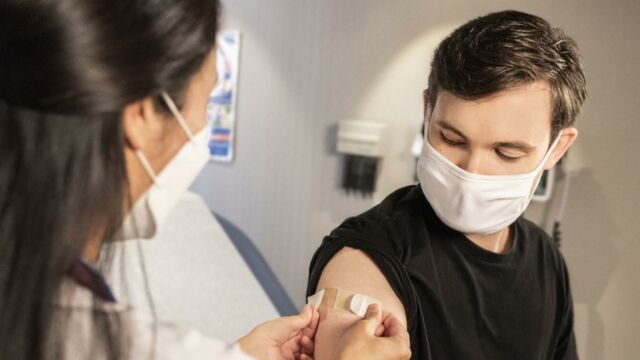COVID: Most common side effects of Pfizer vaccine in teenagers

A study has found that children between the age of 12 and 15 suffer from mild to moderate side effects upon inoculation.
Earlier this week it was revealed that the vaccination programme would be extended toinclude all childrenbetween the ages of 12 and 15 from 6 September. The NHS has reportedly been asked to prepare for the rollout although the decision has not yet been publicly announced.
Discover our latest podcast
The study
Right in the nick of time, a small study has been published in the Archives of Disease in Childhood outlining that children are more likely to face only mild to moderate side effects after getting jabbed with the Pfizer vaccine. Although the study was relatively small, with just 27 participants, authors believe that the results can provide some solace to the worried parents. The authors wrote:
More under this adMore under this adNumbers were small but these data are especially important as they are representative of the children who are most likely to benefit from vaccination, and parents and clinicians may have concerns regarding an increased risk of unexpected events.
As reported by the BBC, doctors in Bristol Royal Hospital for Children examined 27 children for two weeks after they had both the first and second jab in March and April. Given that only medically vulnerable children are eligible for COVID vaccination in the UK, it is important to note that all the participants have been suffering from neurological conditions, including muscular dystrophy and cerebral palsy.
More under this adMore under this adSide effects
Parents were asked to record the side effects their children went through, and researchers found that the most common side effects were mild and short-lived.
Following the first dose, six children experienced eight side effects which subsided in less than 72 hours. They included mild rash, headache, presumed sore throat, neck pain, difficulty sleeping, and low blood sugar. After the second dose, an additional eight occurred in five children: diarrhoea, vomiting, armpit swelling, and blisters around the mouth. All the symptoms cleared up within a week.
More under this adMore under this adOf the 27, only one child had severe fatigue and discomfort until day seven.
Earlier this week it was revealed that the vaccination programme would be extended to include all children between the ages of 12 and 15 from 6 September. The NHS has reportedly been asked to prepare for the rollout although the decision has not yet been publicly announced.
The study
Right in the nick of time, a small study has been published in the Archives of Disease in Childhood outlining that children are more likely to face only mild to moderate side effects after getting jabbed with the Pfizer vaccine. Although the study was relatively small, with just 27 participants, authors believe that the results can provide some solace to the worried parents. The authors wrote:
More under this adMore under this adNumbers were small but these data are especially important as they are representative of the children who are most likely to benefit from vaccination, and parents and clinicians may have concerns regarding an increased risk of unexpected events.
As reported by the BBC, doctors in Bristol Royal Hospital for Children examined 27 children for two weeks after they had both the first and second jab in March and April. Given that only medically vulnerable children are eligible for COVID vaccination in the UK, it is important to note that all the participants have been suffering from neurological conditions, including muscular dystrophy and cerebral palsy.
More under this adMore under this adSide effects
Parents were asked to record the side effects their children went through, and researchers found that the most common side effects were mild and short-lived.
Following the first dose, six children experienced eight side effects which subsided in less than 72 hours. They included mild rash, headache, presumed sore throat, neck pain, difficulty sleeping, and low blood sugar. After the second dose, an additional eight occurred in five children: diarrhoea, vomiting, armpit swelling, and blisters around the mouth. All the symptoms cleared up within a week.
More under this adMore under this adOf the 27, only one child had severe fatigue and discomfort until day seven.